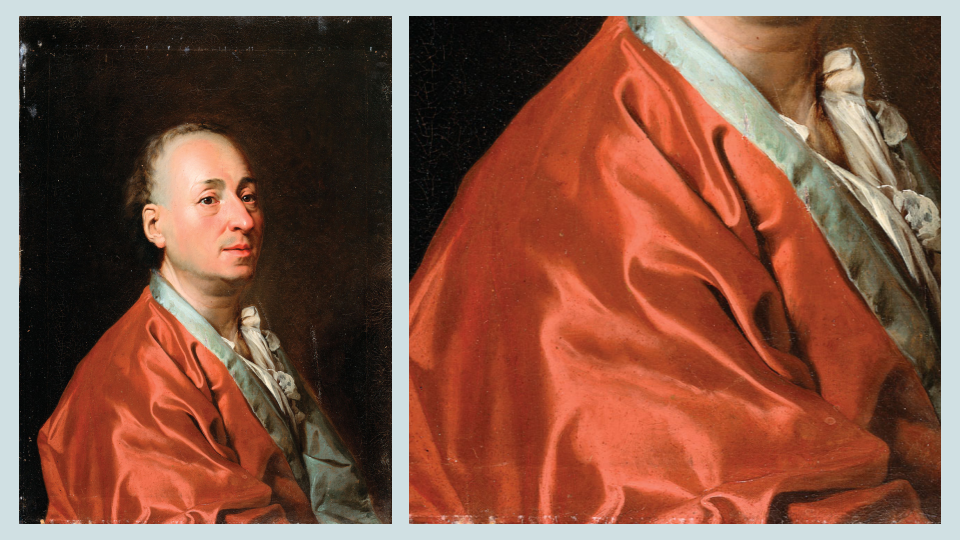Did you really need everything you bought? Except if you are one of the most extreme minimalists out there, the answer is likely to be: probably not. Even so, we keep on buying new products, upgrading to the latest version, and filling our lives with possessions we don’t need. That’s the Diderot Effect at play: a tendency to over consume, mostly caused by our natural need for betterment. Why is it called the Diderot Effect, and how can we manage his overconsumption tendency?
From dressing gown to crippling debt
One day, the famous French writer and philosopher Denis Diderot came into possession of a beautiful scarlet dressing gown. He got rid of his old dressing gown, and marvelled at the new one: a soft, luxurious, precious looking dressing gown, so different from the humble, comfortable dressing down he used to wear.
However, he soon realised the rest of his possessions felt vulgar compared to the new robe, which didn’t live up to the elegance of the sophisticated garment. “My old robe was one with the other rags that surrounded me. A straw chair, a wooden table, a rug from Bergamo, a wood plank that held up a few books, a few smoky prints without frames, hung by its corners on that tapestry. Between these prints three or four suspended plasters formed, along with my old robe, the most harmonious indigence. All is now discordant. No more coordination, no more unity, no more beauty,” he writes in his essay Regrets for my Old Dressing Gown.
Diderot soon went on a buying spree to replace his old possessions with more lavish options. His old straw chair was promptly replaced by an armchair covered in Morocco leather; he bought an expensive writing table to replace his old desk; and the old prints he used to cherish were replaced by prints from more in vogue artists.
Sometimes, the room felt unbalanced, so he would buy more furniture to fill the void. In a short amount of time, Diderot bought a new golden clock, a bronze sculpture, a console table, and more art pieces, ending up in debt.
And this all started with one precious object—the scarlet dressing gown! In Diderot’s words: “I was the absolute master of my old robe. I have become the slave of the new one.”
While Diderot’s story may seem ridiculous, we do often act in a similar way without realising it. We upgrade one aspect of our living room and then buy more furniture to keep the decor balanced; we buy a cabinet and then objects to put on on the shelves; we buy nice running shoes and then splurge on elite athletic wear; we sometimes even buy things just to fill the space.
How to manage the Diderot Effect
Our natural tendency is to always consume more, better, newer. However, with a bit of self-control, it is possible to go from impulse buying to mindful consumption.
- Beware of the shiny toy syndrome. Buying a new shiny toy often only creates temporary satisfaction. Whenever you want to upgrade one of your possessions—for example, a new phone, a new car, a new TV—ask yourself: do I really need the latest version? What actual advantages will I get that are absolutely necessary? Similarly, when you are about to buy any product, consider whether a second-hand version could do a good job. Nice for your wallet, nice for the planet.
- Create spending limits. A simple way to avoid overconsumption is to have a strict budget. Before going shopping or researching a new product, tell yourself: “I will not spend more than this specific amount.” These spending limits should cover the total cost of the product; avoid taking loans for anything else but big, essential purchases. Most of the “buy now, pay later” installment schemes include huge hidden fees which may have a terrible impact on your personal finances. To manage your budget over the long run, you can either use an app or a simple spreadsheet.
- Avoid consumption triggers. Finally, try to not put yourself in a situation where you may fall prey to the Diderot Effect in the first place! It’s hard to avoid advertising these days, but we can still minimise our exposure. Hang out at the park instead of the shopping center, unfollow brands on social media, remove shopping apps from your phone.
In general, managing the Diderot Effect is to practice the ancient art of sophrosyne—to act in a moderate, controlled, unrushed manner; to figure out what possessions will actually enhance your life, and which ones will simply empty your wallet; to take the time to reflect on what we really need to feel safe and content.
P.S. If you’re worried about what happened to the poor Diderot, fear not: he ended up realising the scarlet robe made him lose his way. “With time all debts will be paid, remorse will be calmed and I will have pure joy,” he writes towards the end of his essay.

